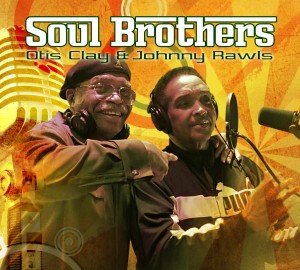|
Otis Clay & Johnny Rawls, Soul Brothers (Catfood, 2014) Candi Staton, Life Happens (Beracah, 2014)
If it's no longer on the charts, surviving soul artists like Otis Clay and Johnny Rawls are doing the music proud on independent labels such as the Texas-based Catfood. Though they didn't begin performing together until relatively recently, Clay and Rawls have been around for a while, Clay as a solo singer, Rawls as the leader of the late O.V. Wright's band (an experience recalled on Rawls's outstanding Remembering O.V.; see my review here on 18 January 2014). Today, working the blues circuit, they're two of the most prominent figures in old-school soul.
Candi Staton (pronounced Stay-ton), who has been recording for more than four decades, mesmerizes with her new release, Life Happens, a sort of confessional album whose theme is the course of romance, from starry-eyed infatuation to acerbic disenchantment. Staton is a powerful singer but no show-off. Her approach, restrained but intense, cuts to the core of the most wrenching and basic of emotions. Not that these themes are exactly unexplored in popular music, but her maturity, depth and nuance shine a searching new light into the darkness. The storytelling gift is there in abundance, and so is the experience; Staton has been married and divorced five times. Anybody who's loved, lost, and loved again (or at least hopes to) -- in short, nearly all of us -- will find his or her own story somewhere in Life Happens. Whether originals, co-writes or covers, Staton's material never falters The song cycle stretches through the first dozen cuts, concluding with her own "My Heart's on Empty," then veers off into three songs of social criticism and protest. It comes to one hour and seven minutes of no-nonsense grown-up music. 
|
 Rambles.NET music review by Jerome Clark 22 November 2014 Agree? Disagree? Send us your opinions!  Click on a cover image to make a selection. 



 |


